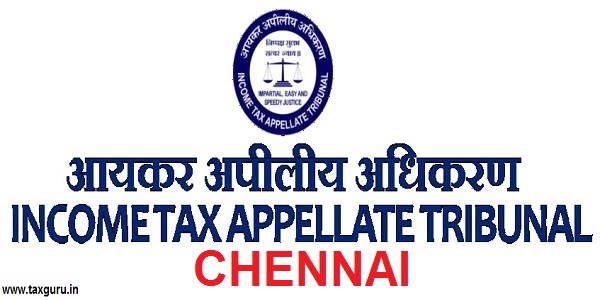Meaning of Newly Notified Rule 9B under Companies Act, 2013 notified on 27th October, 2023 related to Mandatory Dematerialization for Non-Small Private Companies
Introduction
The Ministry of Corporate Affairs has introduced Rule 9B which mandates the conversion of physical shares into demat shares for non-small private companies vide notification dated 27th October, 2023. Many professionals have been interpreting this rule in an invalid sense and not aligned with the purpose of the said rule 9B.
The Ministry of Corporate Affairs introduced rule 9B of the Companies (Prospectus and allotment of securities) rules, 2014 on 27th October 2023. The date in itself shows the great planning and application of mind of the ministry because the due date for the filing of the AOC-4 is 28th October (i.e. 30 days from the date of the Annual General Meeting of the company), if the AGM convened on the last date i.e. 30th September 2023. We all know that the financials are filed in the AOC-4 and they contain information regarding shareholders in many cases, it would be impossible to change the same shareholding of the company. Also as a good practice, we also used to file the notice of AGM in the form and it is not mandatory, which contains the records to which members it has been sent and we can get the list of the shareholders at the time of AGM. Apart from this, MGT-7 provides for the share transfer that took place after the closure of the financial year up to the date of the AGM.
However, the professional can use the loophole may transfer the securities between the date of the AGM and the notification of the said rule in the gazette. The time has passed now and it is not possible to do the same unless the transfer is back-dated, which is said to be in non-compliance of the Act. In this comprehensive guide, we will delve into the details of Rule 9B, providing clarity on its purpose, compliance requirements, and potential challenges.
In Nutshell Rule 9B is:
In this part of the article, we are going to discuss some of the parts of the rule that is required to be followed by the companies under the Companies Act, 2013.
The requirement of compliance arises on 31st March 2023 as under sub-rule (2) it is stated as under “a private company which as on the last day of the financial year, ending on or after the 31st March 2023 is a non-small company as per the audited financial statement for such financial year, shall, within eighteen months of the closure of such financial year, comply with the provision of this rule.”.
The provision has made it very clear that the company is required to issue the securities in the dematerialized form and facilitate the dematerialization of its existing share within 18 months from the end of the financial year in which it is a non-small company as per the audited financial statements. (sub-rule (1) and (2) of rule 9B)
The rule has come up with three different cases of dematerialization which are specified as follows:
Case-1: Every private company which is not a small company as per sub-rule (2) making any offer for issue of any securities or buyback of securities or issue of bonus shares or rights offer, after the date when it is required to comply with this rule i.e. 31st March, 2023, shall ensure that before making such offer, entire holding of securities of its promoters, directors, key managerial personnel has been dematerialised in accordance with the provisions of the Depositories Act, 1996 (sub-rule-3 of rule 9B). The provision is event Based and required and the dematerialization of the holding of selective class of shareholders is required by the company.
Case-2: Every holder of securities of the private company referred to in sub-rule (2),
(a) who intends to transfer such securities on or after the date when the company is required to comply with this rule, shall get such securities dematerialized before the transfer; or
(b) who subscribes to any securities of the concerned private company whether by way of private placement or bonus shares or rights offer on or after the date when the company is required to comply with this rule shall ensure that all his securities are held in dematerialized form before such subscription. (sub-rule-4)
In this case, the person transferring his shares or subscribing via private placement or bonus shares or right issue shall be required to convert his holding into the dematerialized form and not the entire shareholding of all the shareholders in the company.
Case-3: Every company shall issue the securities in the demat form and facilitate the dematerialization of the existing securities within eighteen months from the date of the closure of the financial year ending on or after the 31st March 2023, in which audited financial statement the company is shown as non-small private Companies.
Key Takeaways
The applicability or requirement to comply with the said rule arises based on the financial statement in which the company is not small as per the financials of such financial year.
Many people view that the unlisted public companies have still not complied the rule 9A and neither the prosecution has been initiated by the ROC nor they have been adjudicated for any non-compliance. The Rule 9A does not provide for any timeliness but Rule 9B has mentioned the time limit of eighteen months to facilitate the dematerialization of the existing securities. After, the said period of eighteen months the same shall be construed as a non-compliance.
The provisions of sub-rules (4) to (10) of rule 9A shall, mutatis mutandis, apply to the dematerialization of securities under rule 9B on the non-small private companies.
Rule 9A has provided relief against the compliance to the Nidhi companies, wholly owned subsidiaries, and Government companies but the said rule 9B has provided relief only to the government companies and no one else.
It is a well-written law, the said sub rule can easily be understood if we can able to understand the requirement of the compliance of the said rule along with its different sub-rules which deal with different situation.
The requirement of compliance arises from the last date of the financial year in which the private company is not the small company as per their audited financial statement.
As of its plain interpretation the compliance is to be completed within 18 months from the date of the requirement of the compliance as the word ‘within’ is used by the law maker instead of word ‘after’.
The complete shareholding is required to be dematerialized within 18 months. However, only some part of the security holder is required to convert their securities on the event basis, where no period is specified which means those selective holders as explained in the case-1 and case-2 are required to convert their holding before 18 months period due to the event discussed in the case-1 and case-2 in the previous section.
I hope this article has been able to solve your reasonable doubts and other questions that may be arising in your mind. The purpose of this article is to keep things simple and make you understand the interpretation of the said introduced rule at the best. However, this has been my own opinion and my own judgment and understanding of the law. I will be happy to receive your comments in the form of questions and scope of the improvement, if any on this article.



























